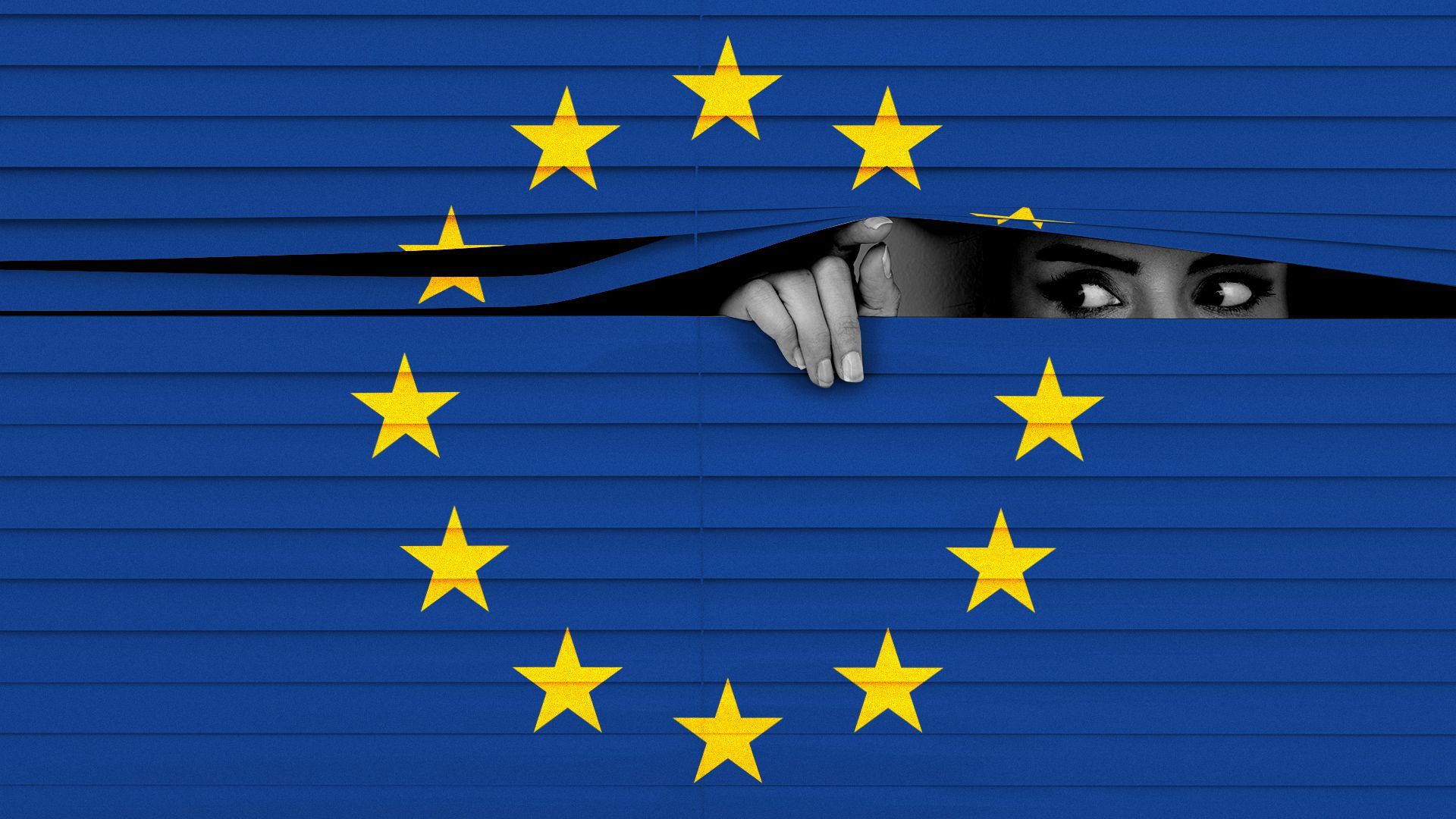EU Parliament committees vote against crypto privacy
Add Axios as your preferred source to
see more of our stories on Google.

Illustration: Aïda Amer/Axios
Two committees of the European Union Parliament today voted to move forward draft legislation to take all privacy out of cryptocurrency transactions.
Why it matters: The committees voted for rules that would ban transactions that state authorities can't readily tie to a person or an organization, striking a blow to the pro-privacy bent of so many crypto users.
- The Committee on Economic and Monetary Affairs (ECON) and the Committee on Civil Liberties (LIBE) voted their support for draft legislation aimed at curtailing crime, with 93 votes to 14, as well as 14 abstentions.
- "Under the new requirements agreed by MEPs, all transfers of crypto-assets will have to include information on the source of the asset and its beneficiary, information that is to be made available to the competent authorities," a statement posted the European Parliament website read.
- Person-to-person transactions would not be included.
What they're saying: The crypto industry particularly objects to new rules about individuals' personal crypto wallets (what lawyers like to call "self-hosted wallets").
- "Among the worst of the proposed provisions are new obligations on exchanges to collect, verify and report information on non-customers using self-hosted wallets," Coinbase's Paul Grewal wrote on the company blog.
Wallets are software people use to control their own digital assets, so people don't have to trust anyone else with their funds.
- Grewal explains that the rules would require Coinbase to verify who was sending one of their customers money before allowing them to do so.
The other side: One of the backers of the legislation said traceability is essential.
- "As illustrated by all the recent money-laundering scandals, from the Panama Papers to the Pandora Papers, criminals thrive where rules allowing for confidentiality allow for secrecy and anonymity," Ernest Urtasun, co-rapporteur for the ECON said in a statement.
What's next? Parliament members will negotiate the final legislative language with member governments. The European Parliament is expected to vote on the measure in April.
